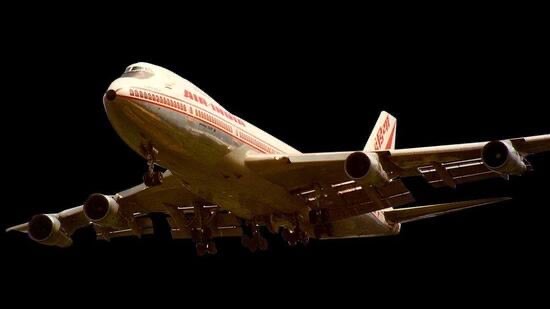External affairs minister S Jaishankar said the 39th anniversary of the 1985 Kanishka flight bombing was a reminder why terrorism should never be tolerated. India has cited the deadly bombing of Air India flight 182 in 1985 to reiterate its concerns about the threat posed by Khalistani elements based in Canada, with external affairs minister S Jaishankar saying the attack was a reminder why terrorism should never be tolerated. Jaishankar’s remarks on X and a ceremony organised by the Indian high commission in Ottawa on Sunday to pay homage to the victims of the bombing of the airliner named Kanishka came days after the Canadian Parliament observed a minute’s silence on the first anniversary of the killing of Khalistani activist Hardeep Singh Nijjar, declared a terrorist by Indian authorities. Until the devastating 9/11 attacks in the US by al-Qaeda, the bombing of Air India flight 182 was the worst aviation-related terrorist attack in history. It remains the worst terror attack in Canadian history, having resulted in the death of all 329 people on board the airliner, including more than 270 Canadian citizens, mostly of Indian origin, and 24 Indians. Jaishankar said in a post on X on the 39th anniversary of “one of the worst acts of terrorism in history” that his thoughts were with the families of the 329 victims. “The anniversary is a reminder why terrorism should never be tolerated,” he said. In an apparent reference to Canadian authorities turning a blind eye to the activities of pro-Khalistan elements in recent months, Indian high commissioner Sanjay Verma, while addressing the ceremony in Ottawa, said: “No government in the world should overlook the threat of terrorism emanating from its territories for political gains. Human lives are much more important than the transitory political interests.” All terror activities “should be met with exemplary legal and social actions” and governments, security agencies and international organisations must work in concert to dismantle terror networks, disrupt their financing and counter their “twisted ideologies”, Verma said. A statement issued by the Indian high commission said any act glorifying terrorism, including the bombing of Kanishka, should be condemned. “It is unfortunate that such actions are allowed to be routine on many occasions in Canada,” the mission said in a statement. Relatives and friends of victims, Canadian government officials, the envoy of Ireland and members of the Indo-Canadian community attended the ceremony. While Canadian Prime Minister Justin Trudeau made a statement to mark the “National Day of Remembrance for Victims of Terrorism”, he made no reference to the perpetrators of the bombing of Air India flight 182 or the efforts to bring them to justice. “Thirty-nine years ago today, 329 innocent people, including 280 Canadians, tragically lost their lives when a bomb, planted on Air India Flight 182 in Canada, exploded mid-flight. This remains the deadliest terrorist attack in Canadian history. It reminds us of the senseless violence that terrorism perpetuates and of our shared responsibility to unequivocally condemn terrorism,” Trudeau said. His statement referred to the updating of Canada’s counter-terrorism strategy to make it more effective and the listing of Iran’s Islamic Revolutionary Guard Corps (IRGC) as a terrorist entity but was silent on the perpetrators of the Kanishka bombing. Canadian law enforcement said as recently as last week that the investigation into the bombing of Air India flight 182 by Khalistani terrorists is “active and ongoing”. Assistant commissioner David Teboul, commander of the Federal Policing Program in the Pacific Region, described the probe as “the longest and certainly one of the most complex domestic terrorism investigations” undertaken by the Royal Canadian Mounted Police (RCMP). As far back as 2005, an official report by Bob Rae, the independent advisor to Canada’s public safety minister, had said the bombing of Air India flight 182 was the outcome of a conspiracy in “radical sections of the Sikh community in Vancouver and elsewhere who were pursuing the goal of an independent country, to be called Khalistan”, in India’s Punjab state.
Trending
- Republic Day parade seating row returns as Congress flags Rahul Gandhi, Kharge’s seats: ‘Lack of protocol’.
- Relations for 10 years, then a promise broken: Dhurandhar actor arrested on sex assault charges by domestic worker.
- Zoho founder attacks Congress over ‘gomutra’ dig at IIT prof who got Padma Shri.
- India-EU trade deal finalised, says commerce secy; to take effect next year.
- ‘Financing war against themselves, via Russian oil’: US secy Scott Bessent ballistic over EU’s trade deal with India.
- Ex-IPS Inderjit Sidhu, 88, on a mission to clean his city’s streets by himself, gets Padma Shri.
- Argument while getting off local train, then a stabbing: Mumbai professor’s shocking murder at Malad station.
- Mark Tully passes away at 90: BBC’s ‘voice of India’ reported from Amritsar to Ayodhya, key moments of history.



